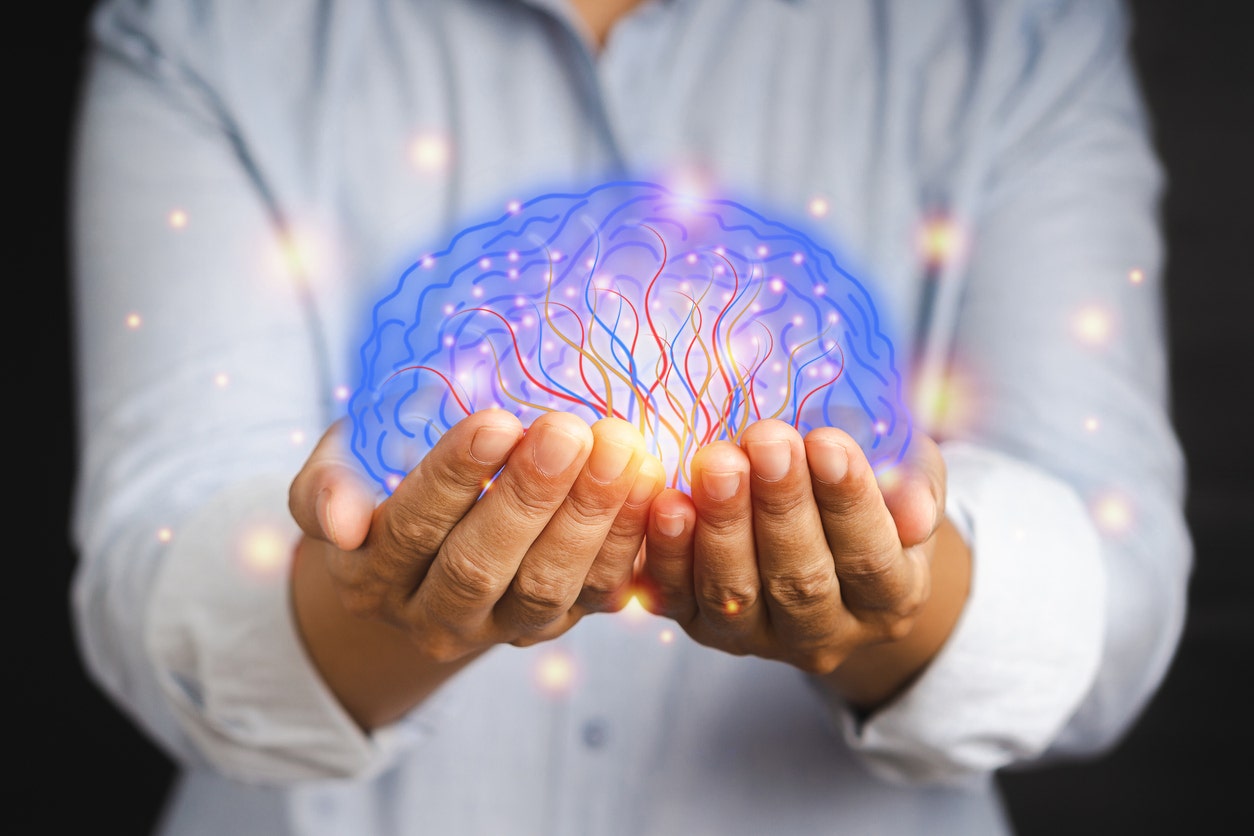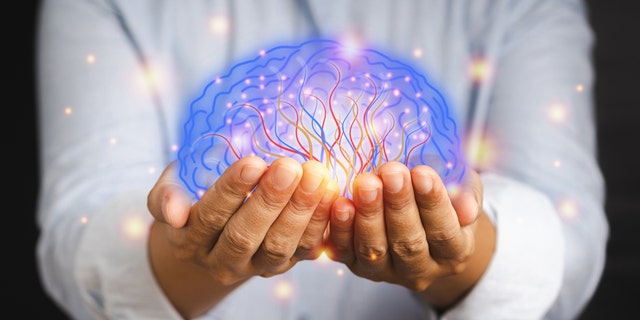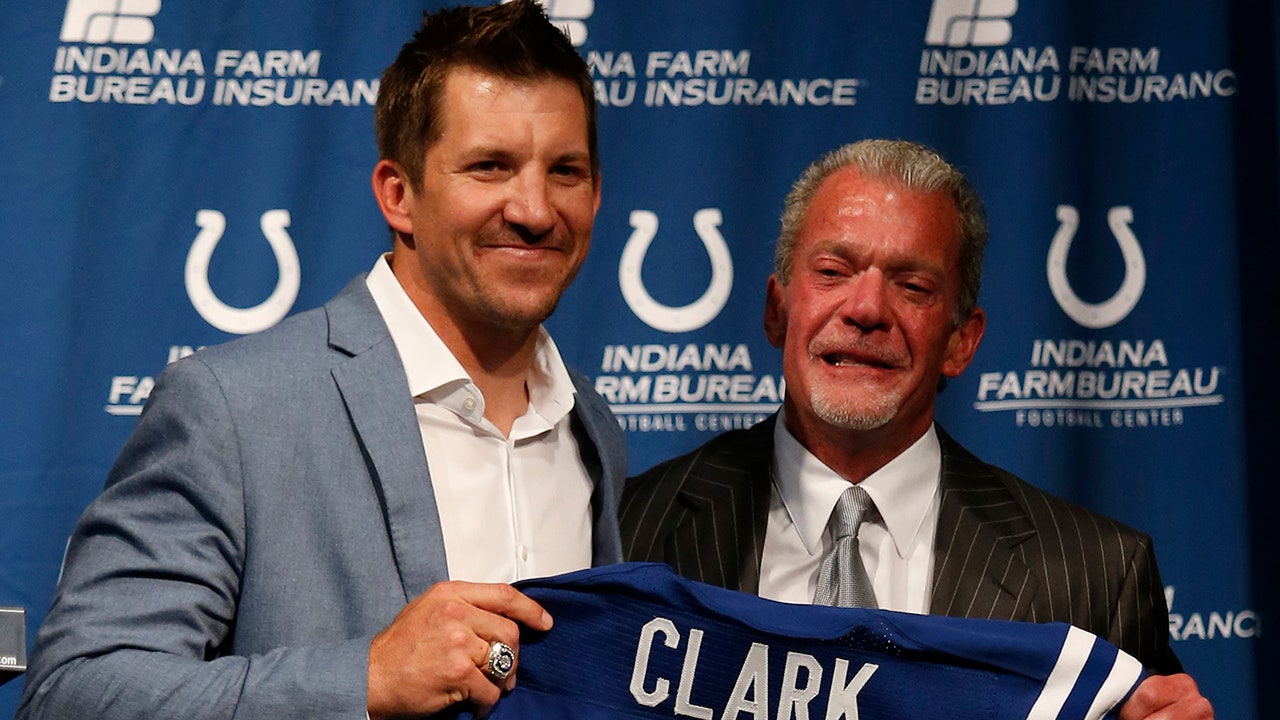Health
Talk therapy? AI may detect ‘earliest symptoms’ of dementia by analyzing speech patterns

A new artificial intelligence-powered tool aims to detect signs of dementia, Alzheimer’s and other memory disorders by analyzing a person’s speech and language patterns.
The system is called CognoSpeak. Researchers at the University of Sheffield in the U.K. developed it.
In early trials that included both Alzheimer’s patients and cognitively heathy people, the tool showed 90% accuracy in identifying those with dementia — which is just as accurate as “pen-and-paper tests,” according to a press release announcing the new tool.
AI TOOL GIVES DOCTORS PERSONALIZED ALZHEIMER’S TREATMENT PLANS FOR DEMENTIA PATIENTS
The patient communicates with a “virtual agent” displayed via a web browser on a computer, laptop or tablet.
The virtual agent poses certain questions to patients — similar to the ones used to test memory skills during in-person consultations — and also asks them to describe pictures and test their verbal fluency.
A new artificial intelligence-powered tool aims to detect signs of dementia, Alzheimer’s and other memory disorders by analyzing a person’s speech and language patterns. (iStock)
At that point, CognoSpeak’s built-in AI technology analyzes the patient’s language and speech patterns to detect any cognitive warning signs.
Researchers next plan to test the tool on 700 participants from U.K. memory clinics, with funding provided by the National Institute for Health and Care Research.
The goal is for CognoSpeak to help enable faster diagnosis by serving as a “middle man” between the general practitioner and the dementia specialist.
“This tool could help patients start treatments sooner, reduce waiting times and give people certainty earlier.”
The physician would refer the patient to CognoSpeak and the test results would be routed back to the doctor — who would then decide whether the patient needed further memory care.
INTERNET USE BY SENIORS ON REGULAR BASIS COULD SLASH THEIR DEMENTIA RISK, STUDY SUGGESTS
“Waiting for a possible diagnosis of dementia can be a very anxious time for patients and their families,” said Dr. Dan Blackburn from the University of Sheffield’s Department of Neuroscience in the press release. “This tool could help patients start treatments sooner, reduce waiting times and give people certainty earlier.”
He added, “This would also free up clinicians’ valuable time and mean that those who need specialist care get access to it as quickly as possible.”
Connection between speech and dementia
One of the earliest symptoms of dementia is struggling to find words and pausing during speech, noted Dr. James Galvin, director of the Comprehensive Center for Brain Health at the University of Miami Miller School of Medicine, in a statement provided to Fox News Digital.
Galvin was not involved in CognoSpeak’s research or development.

The patient communicates with a “virtual agent” — which asks questions to test the person’s memory skills and cognitive fluency. (iStock)
“Using AI to analyze speech in the primary care setting could be a quick, reliable way to assess cognitive status, even if a person does not offer a memory complaint,” he said.
Dr. Michael Kleiman, PhD, a research assistant professor of neurology at the Comprehensive Center for Brain Health at the University of Miami Miller School of Medicine, is a colleague of Galvin’s who has studied the link between speech behavior and detection of early stages of cognitive impairment.
IOWA WOMAN, 27, HAS 99% CHANCE OF DEVELOPING DEMENTIA: ‘I NEEDED TO KNOW’
“Speech patterns in general are highly useful at identifying cognitive impairment, and some of the components of CognoSpeak, including picture descriptions, are frequently used by neuropsychologists and neurologists to assess and diagnose dementia,” Kleiman said. (He also has no affiliation with CognoSpeak.)
“If this tool is able to effectively process the speech data in an accurate and efficient manner, as well as keep patients engaged, we would expect that it would be useful for clinicians when assessing cognitive impairment,” he added.

Some 5.8 million people in the U.S. have Alzheimer’s disease and related dementias, according to the Centers for Disease Control and Prevention. (iStock)
As with all diseases, early detection is key, experts agree — which is why the speed of CognoSpeak could be beneficial.
“Given that Alzheimer’s disease and other dementias are progressive, it is important to catch these changes early in order to implement available interventions when they can be most effective to slow down cognitive decline,” Percy Griffin, PhD, the director of scientific engagement at the Alzheimer’s Association in Chicago, Illinois, said to Fox News Digital.
‘More work is needed’
While experts agree that the role of AI in neurology shows promise, more research is needed before it can be relied upon as a primary indicator.

While speech testing is useful, experts noted that it’s not the only component necessary for diagnosing dementia. (iStock)
“Although this technology is encouraging, more work is needed in larger, more representative study populations to further validate the utility of AI tools like this one in helping to diagnose Alzheimer’s,” said Griffin.
CLICK HERE TO SIGN UP FOR OUR HEALTH NEWSLETTER
“In the future, this could be another tool in the toolbox for early detection of Alzheimer’s,” he added.
And while speech testing is useful, experts noted that it’s not the only component necessary for diagnosing dementia.
“Other aspects of cognition — in particular, memory — and a detailed neurological examination must also be examined to establish a true diagnosis,” Kleiman said.

The physician would refer the patient to CognoSpeak and the test results would be routed back to the doctor — who would then decide whether the patient needed further memory care. (iStock)
Ideally, Percy added, the availability of non-invasive and potentially less expensive approaches to early detection and diagnosis — a combination of blood tests, simple digital tests and other tools — would make cognitive assessments available to more people.
Around 5.8 million people in the U.S. have Alzheimer’s disease and related dementias, according to the Centers for Disease Control and Prevention (CDC).
The number of cases is expected to reach 14 million by 2060.

Health
Video: R.F.K. Jr. Says U.S. Will Stop Funding Global Vaccine Agency

new video loaded: R.F.K. Jr. Says U.S. Will Stop Funding Global Vaccine Agency
transcript
transcript
R.F.K. Jr. Says U.S. Will Stop Funding Global Vaccine Agency
Robert F. Kennedy Jr., the health and human services secretary, said the United States would not deliver on a $1.2 billion pledge made by the Biden administration until the organization changed its processes.
-
There’s much that I admire about Gavi, especially its commitment to making medicine affordable to all the world’s people. Gavi has done that part of its job very well. Unfortunately, in its zeal to promote universal vaccination, it has neglected the key issue of vaccine safety. When the science was inconvenient, Gavi ignored the science. I call on Gavi today to re-earn the public trust and to justify the $8 billion that America has provided in funding since 2001. And I’ll tell you how to start taking vaccine safety seriously. Consider the best science available, even when the science contradicts established paradigms. Until that happens, the United States won’t contribute more to Gavi. Define success, not just in terms of the number of vaccines delivered, but on their rigorously measured overall impacts. Business as usual is over. Unaccountable and opaque policymaking is over.
Recent episodes in Health
Health
Predicting weight loss, reversing diabetes and relieving depression

NEWYou can now listen to Fox News articles!
Fox News’ Health newsletter brings you stories on the latest developments in healthcare, wellness, diseases, mental health and more.
TOP 3:
– Your DNA could keep you from losing weight, says new study
– Grandfather’s simple changes reversed pre-diabetes diagnosis
– Single dose of ‘magic mushrooms’ provides years of depression relief
This week’s top health news includes how DNA could impact weight loss, a grandfather’s battle with diabetes, and magic mushrooms used as treatment for depression. (iStock)
MORE IN HEALTH
STAY COOL – Keep comfortable during heat waves with these portable and household fans. Continue reading…
EYE ON HEALTH – Diabetic patients taking GLP-1s may face increased risk of vision loss, a study suggests. Continue reading…
FOLLOW FOX NEWS ON SOCIAL MEDIA
YouTube
SIGN UP FOR OUR NEWSLETTERS
Fox News First
Fox News Opinion
Fox News Lifestyle
Fox News Health
Fox News Autos
Fox News Entertainment (FOX411)
DOWNLOAD OUR APPS
Fox News
Fox Business
Fox Weather
Fox Sports
Tubi
WATCH FOX NEWS ONLINE
Fox News Go
STREAM FOX NATION
Fox Nation
Health
Lizzo Reveals the Diet Change That Helped Her Lose Weight Without Ozempic

Use left and right arrow keys to navigate between menu items.
Use escape to exit the menu.
Sign Up
Create a free account to access exclusive content, play games, solve puzzles, test your pop-culture knowledge and receive special offers.
Already have an account? Login
-

 Arizona1 week ago
Arizona1 week agoSuspect in Arizona Rangers' death killed by Missouri troopers
-

 Business6 days ago
Business6 days agoDriverless disruption: Tech titans gird for robotaxi wars with new factory and territories
-

 Education1 week ago
Education1 week agoJudge Delays Ruling on Trump Efforts to Bar Harvard’s International Students
-

 Culture1 week ago
Culture1 week agoMatch These Books to Their Movie Versions
-

 Business1 week ago
Business1 week agoWilliam Langewiesche, the ‘Steve McQueen of Journalism,’ Dies at 70
-

 Politics1 week ago
Politics1 week agoHow Johnson pulled off another impossible win with just 1-vote margin on $9.4B spending cut bill
-

 World1 week ago
World1 week agoIAEA warns Israel-Iran conflict threatens nuclear facilities, diplomacy
-

 News1 week ago
News1 week ago‘The Age of Trump’ Enters Its Second Decade















